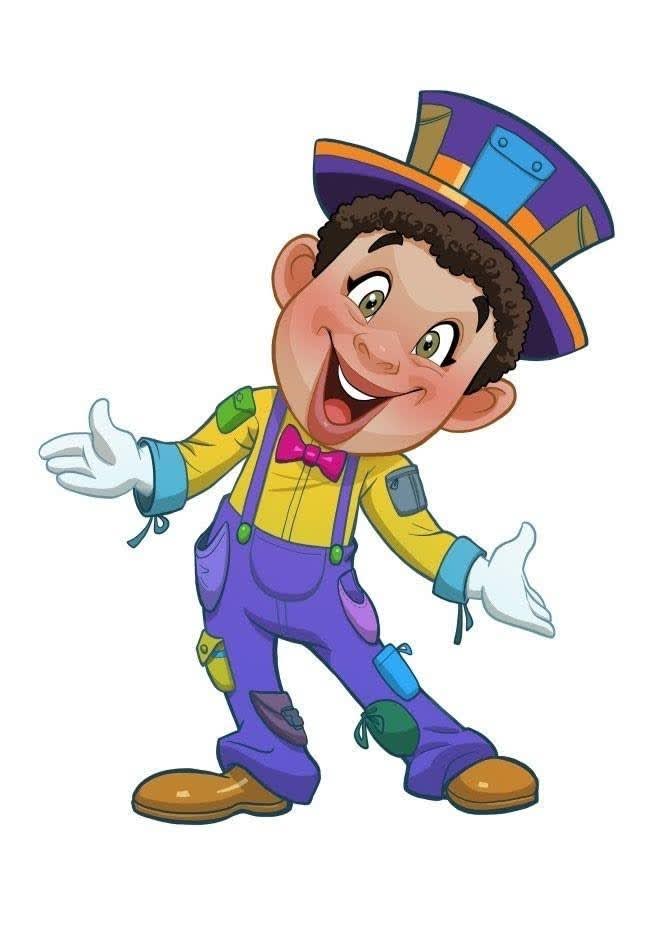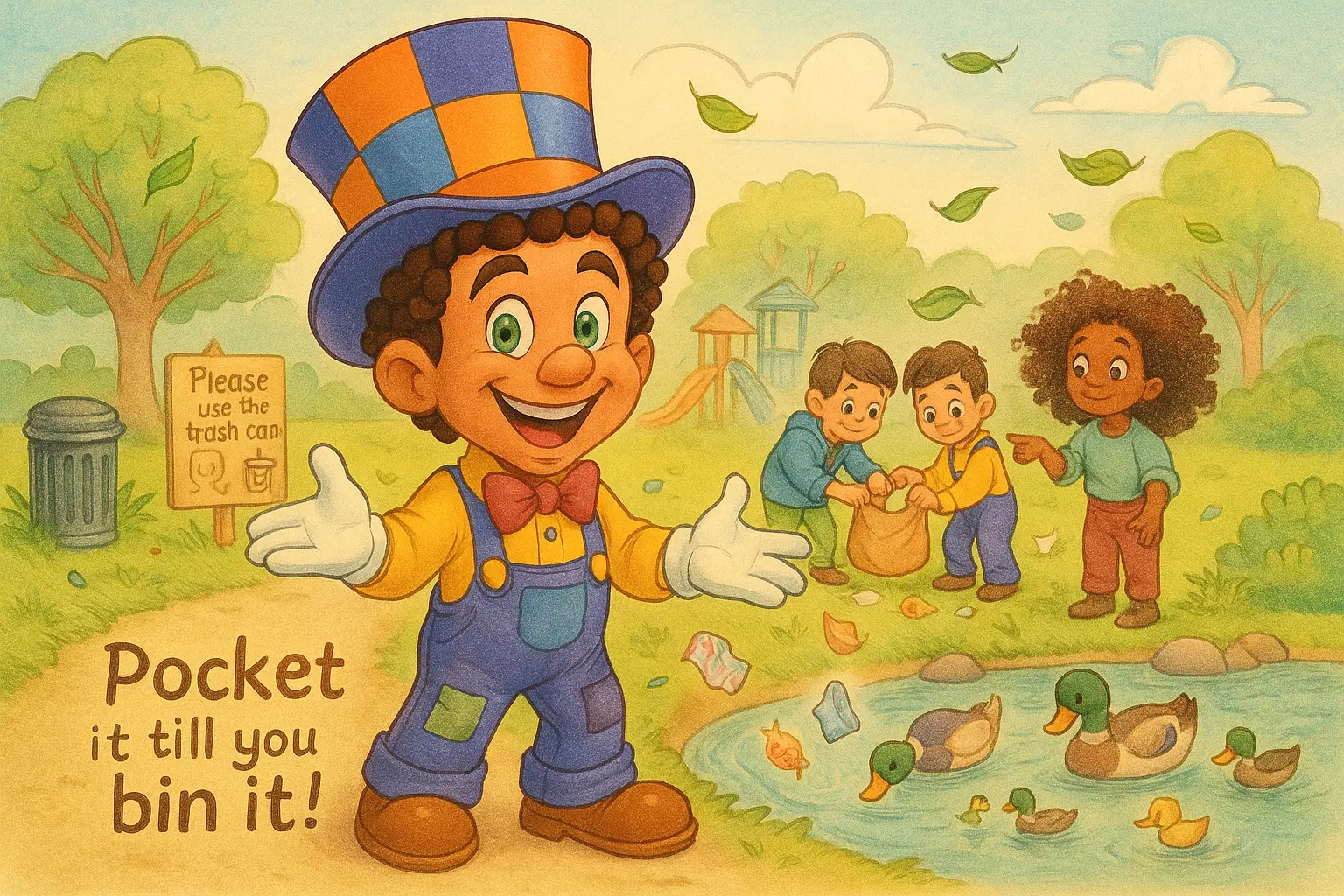One sunny morning, Mukur saw Pockets bend down to pick up a candy wrapper from the grass.
“Why do you do that?” Mukur asked.
Pockets smiled. “The ground is not a trash can,” he said. “I will carry it until I find one.”
“But isn’t it yucky?” asked Mukur.
“I have this little bag,” Pockets said. He showed the paper bag in his pocket. “I will throw it all away later. Easy!”
Mukur nodded. “You are funny,” he said. “But you are kind.”
They walked to the park. The sky was blue, and the wind was strong. Whoosh! The wind made the leaves dance and the clouds move fast. It also made loose trash fly around—wrappers, cups, and napkins.
A crinkly chip bag rolled by like a tiny silver fish. A cup bounced and hopped. A napkin flapped like a small white bird.
“Oh no,” said Mukur. “The trash is going to the pond!”
The ducks were swimming in the water. One duck pecked at a shiny wrapper. Pockets ran. He caught the wrapper just in time.
“Got it!” he said, and he tucked it into his paper bag.
Another napkin flew past. Pockets grabbed it. Into the pocket it went. A straw skittered across the path. Pockets scooped it up. Into the pocket it went.
“You are fast,” said Mukur.
“You can help, too,” said Pockets.
So Mukur helped. He held open the paper bag while Pockets dropped in the trash. Whoosh, crinkle, plop. Whoosh, crinkle, plop. They laughed as they chased the runaway trash, like they were catching butterflies.
Soon, Pockets’ paper bag in his pocket was full. “We need a trash can,” he said.
They looked around. The nearest trash can was across the playground. They walked carefully so nothing fell out. On the way, a little girl pointed and said, “Look, Mama! Those boys are cleaning the park!”
Her mother smiled. “Thank you, helpers,” she said. “You are keeping the ducks safe.”
Pockets and Mukur felt warm and proud inside. They reached the trash can and emptied the bag. Pockets tapped the side of the can. “Safe and sound,” he said.
They went back to the pond. More trash was still blowing. A boy with a green hat was about to drop a wrapper when he saw Pockets and Mukur.
“Hey,” said the boy. “What are you doing?”
“We are saving the park,” said Mukur.
“We keep trash until we find a trash can,” said Pockets. “You can do it, too.”
The boy looked at his own jacket. “I have pockets,” he said. He stuffed his wrapper into his pocket and grinned. “I will throw it away later.”
“Nice,” said Pockets. “Pocket it till you bin it!”
The wind began to calm. The ducks quacked softly. The pond looked clean again. Pockets took out his small paper bag and checked his pockets. Empty now. Good. He folded the bag so he could use it again next time.
Mukur sat beside him on the grass. “Pockets,” he said, “at first I thought your idea was silly. But today I saw it is smart.”
Pockets nodded. “Small things help the world,” he said. “One wrapper. One step. One pocket.”
They watched a leaf fall and spin. A breeze lifted it and set it down gently.
“Tomorrow,” said Mukur, “let’s bring two paper bags.”
“Good plan,” said Pockets. “And maybe we can make a sign for the park.”
They drew a sign on a piece of cardboard: “Please use the trash can.” They drew a little duck and a big smiling trash can. They put the sign near the path where people could see it.
As they finished, an old man with a gray hat walked by. He was eating an apple. He held the core and looked around. There was no trash can near him. He paused.
Pockets and Mukur watched. The old man smiled, put the apple core in his pocket, and kept walking. “I will throw it away when I find a bin,” he said.
Pockets and Mukur looked at each other and grinned.
On their way home, they made a little chant:
“Keep it in your pocket,
Keep it safe and tight.
Find a bin to drop it,
Keep our world bright.”
That night, Pockets hung his blue jacket on a chair. He felt happy and tired. He washed his hands, brushed his teeth, and went to bed. In his mind, the ducks swam in a clear pond, the grass was green, and the sky was wide and clean.
And in the morning, when he put on his jacket, he felt ready again—ready to care, ready to help, ready to pocket it till he could bin it.


